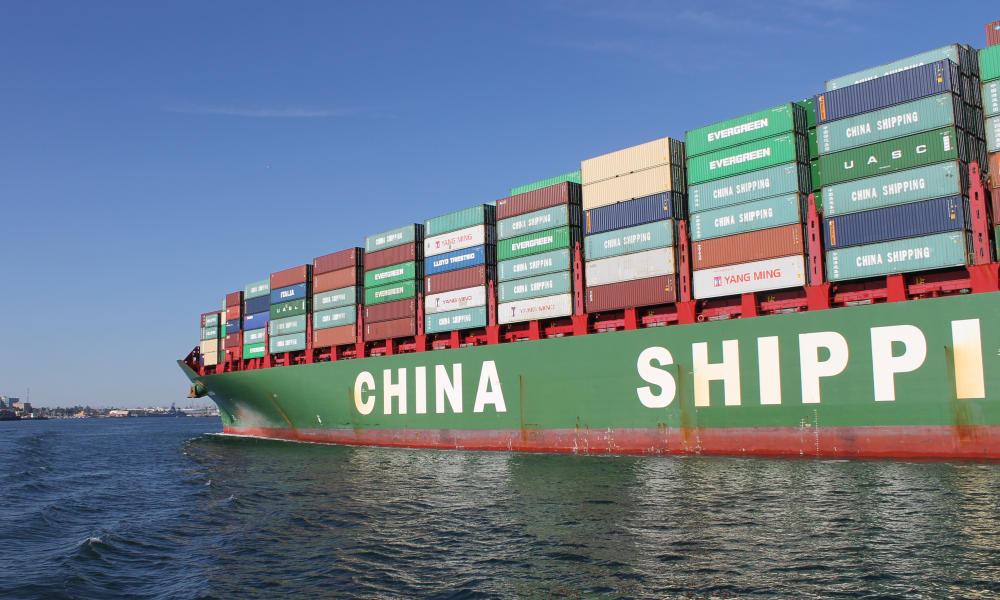Reviews
Shipping Forwarder China to USA: Everything You Need to Know

Moving products from China to the United States is one of the most active routes in global trade. Thousands of companies rely on freight forwarders to make sure their goods arrive safely, on time, and without unnecessary cost. Whether you’re a new business owner sourcing from Chinese suppliers or an established importer looking to improve efficiency, understanding how shipping forwarders operate can save you money and stress.
A shipping forwarder China to USA handles every step of the process, coordinating with manufacturers, managing documentation, arranging transportation, and ensuring your products meet customs requirements. Their expertise bridges the gap between two massive markets and keeps supply chains running smoothly.
What a Shipping Forwarder Actually Does?
A shipping forwarder isn’t a carrier but an intermediary who organizes the logistics between the seller and the buyer. Their main goal is to get your goods from point A to point B as efficiently and safely as possible.
They handle:
- Booking cargo space with airlines, shipping lines, or trucking companies.
- Preparing export and import documents like the bill of lading, commercial invoice, and packing list.
- Customs clearance in both China and the U.S.
- Insurance and risk management, protecting your cargo against damage or loss.
- Tracking and delivery coordination to ensure you know where your goods are at each stage.
By using a forwarder, you’re essentially hiring a partner who understands both the local regulations in China and the complex import laws in the U.S.
Why Do Businesses Choose to Work with a Shipping Forwarder?
Shipping directly from suppliers might sound simple, but international logistics is rarely straightforward. The process involves multiple carriers, government agencies, and sometimes unexpected delays. That’s where forwarders make a difference.
- Experience with complex routes:
A forwarder knows the best ports, the fastest flight routes, and the most cost-effective carriers. - Customs compliance:
Mistakes in documentation or duties can lead to weeks of delay. A forwarder ensures everything is accurate. - Negotiated rates:
Because forwarders move high volumes, they often have better rates with carriers than individual businesses could get. - Risk reduction:
Forwarders handle insurance and help you manage claims if your goods are damaged in transit.
For small or medium-sized businesses that don’t have a logistics department, a forwarder is often the most practical solution.
Understanding the Shipping Options
There’s no single “best” way to move goods from China to the U.S, it depends on the type, size, and urgency of your shipment. Here are the main options:
1. Sea Freight
Sea freight is the backbone of global trade. It’s ideal for large or heavy shipments that aren’t time-sensitive. You can choose between:
- Full Container Load (FCL): Your products fill an entire container, offering security and simplicity.
- Less than Container Load (LCL): You share space with other shippers, paying only for the space you use.
Sea freight is slower but far cheaper than air freight, especially for bulk goods. Most importers rely on major Chinese ports like Shanghai, Shenzhen, and Ningbo for regular shipments to U.S. ports such as Los Angeles, Long Beach, and New York.
2. Air Freight
If you’re shipping smaller, high-value, or time-sensitive goods, air freight is the fastest option. It usually takes around 3–7 days, depending on customs processing. The cost per kilogram is higher, but it’s worth it for urgent deliveries or when you need reliable lead times.
3. Rail or Express Courier
Some forwarders offer rail freight that connects China’s inland cities to Europe and the U.S. via multimodal routes, or express courier services through DHL, FedEx, or UPS for smaller packages. These services are quick and convenient but can be more expensive.
Key Documents You’ll Need
Documentation is the backbone of international trade. Missing or inaccurate paperwork can halt your shipment at customs. A forwarder ensures that all required forms are prepared and submitted correctly. These usually include:
- Commercial Invoice: Details the sale between buyer and seller.
- Packing List: Lists each item and its packaging details.
- Bill of Lading or Airway Bill: A contract between shipper and carrier.
- Certificate of Origin: Verifies where the goods were made.
- Import Licenses or Permits: Required for certain regulated products.
Your forwarder will handle these on your behalf, making the process far less stressful.
Customs and Duties Between China and the U.S.
One of the most challenging aspects of cross-border shipping is dealing with customs. Every product has an HS (Harmonized System) code that determines its import duty. Tariffs between the two countries have fluctuated in recent years, especially during trade disputes, but a knowledgeable forwarder keeps up with current rates and helps you calculate landed costs accurately.
Forwarders also help ensure compliance with U.S. Customs and Border Protection (CBP) regulations, including labeling, safety standards, and product restrictions. If a shipment is flagged, your forwarder will communicate with customs agents on your behalf to resolve the issue.
Estimating Transit Times and Costs
The total shipping time from China to the U.S. varies depending on your chosen method and the location of both origin and destination:
- Sea Freight: 25–40 days on average.
- Air Freight: 3–7 days.
- Express Courier: 2–5 days.
Costs are influenced by factors like shipment size, weight, and season. For example, prices often rise before major holidays like Christmas or Chinese New Year, when shipping demand surges. Forwarders help you plan shipments around these peak periods to keep costs manageable.
How to Choose the Right Shipping Forwarder?
Finding a reliable partner is crucial. Here are a few qualities to look for:
- Experience with the China–U.S. route:
They should have established connections with local carriers, agents, and customs offices. - Transparent pricing:
You should receive a clear breakdown of costs with no hidden fees. - Strong communication:
The best forwarders keep you updated with tracking information and respond quickly to questions. - Customer support:
Problems can arise in logistics, so you want a forwarder who takes responsibility and helps you find solutions quickly. - Comprehensive services:
Some forwarders, like Ardi Express, provide complete solutions, from pickup at the factory in China to delivery in the U.S., covering customs, warehousing, and even final-mile delivery.
Common Mistakes to Avoid
Even with professional help, there are pitfalls to watch out for:
- Ignoring Incoterms: These rules define who pays for what and where the risk transfers. Always clarify them before shipping.
- Not checking product regulations: Some items (like electronics or food) have special import requirements.
- Overlooking insurance: Cargo insurance is essential for protecting your shipment.
- Assuming one-size-fits-all shipping: Each product type may require a different shipping method or documentation.
A forwarder can guide you through these details, but understanding them yourself helps prevent costly mistakes.
The Role of Technology in Freight Forwarding
Modern forwarders now use digital platforms to simplify tracking and documentation. With real-time tracking systems and online quotes, shippers can stay informed without having to chase updates. However, while technology helps, the human side of forwarding, experience, problem-solving, and relationships, still makes the biggest difference in smooth shipping.
Building Long-Term Relationships with Your Forwarder
Shipping is not just a transaction, it’s a partnership. The more your forwarder learns about your business, the better they can anticipate your needs. If you regularly import from China, maintaining a consistent relationship with your forwarder can lead to better rates, faster handling, and priority support.
Trust builds over time, and having a dependable forwarder means fewer surprises, fewer delays, and a more predictable supply chain.
Final Thoughts
Choosing the right shipping forwarder China to the USA can make international trade far less complicated. From managing customs paperwork to ensuring your goods reach their destination safely, a skilled forwarder acts as your logistics backbone. For businesses that depend on reliable shipping from China, companies like Ardi Express provide the expertise and structure you need to keep your operations running smoothly.
Whether you’re just starting to import or you’ve been doing it for years, the right forwarding partner can help you focus on what matters most, growing your business with confidence.

-

 US News2 days ago
US News2 days agoJetBlue flight diverts to Tampa after altitude drop injures at least 15
-

 US News1 week ago
US News1 week agoUnwarned tornado suspected in Fort Worth as storms cause damage and power outages
-

 World6 days ago
World6 days agoU.S. Navy helicopter and fighter jet crash in South China Sea; all crew rescued
-

 Legal7 days ago
Legal7 days agoMultiple injured in shooting at Lincoln University in Pennsylvania
-

 US News3 days ago
US News3 days agoTrump says U.S. will resume nuclear weapons testing ‘on an equal basis’
-

 US News4 days ago
US News4 days agoDamage reported in Kilgore, Texas following tornado warning
-

 World6 days ago
World6 days agoMelissa could make landfall in Jamaica as a Category 5 hurricane
-

 Legal4 days ago
Legal4 days ago3 killed in murder-suicide involving Wright-Patterson Air Force Base personnel




